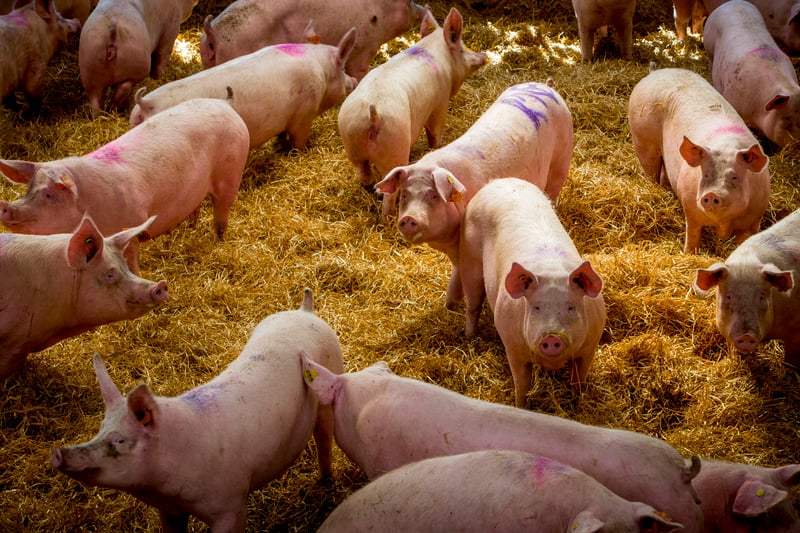
U.S. food companies lag behind on farm animal welfare reporting
News
The 3rd issue of the Business Benchmark on Farm Animal Welfare has now been released. In collaboration with Compassion in World Farming, the Benchmark provides an annual review of how the world’s leading food companies are communicating on their farm animal welfare policies.
Aimed primarily at investors, the Business Benchmark for Animal Welfare (BBFAW) ranks companies on their farm animal welfare management and reporting. The report is put together by an independent secretariat, with funding from leading farm animal welfare organizations Compassion in World Farming and World Animal Protection, and with support from Coller Capital.
According to the benchmark, farm animal welfare is an immature business issue in the U.S.
BBFAW ranks 80 companies, placing them in categories from Tier 1 (indicating companies are taking a leadership position), to Tier 6 (where animal welfare does not appear to be on the business agenda).
This year’s report includes 20 companies headquartered in the U.S., including Walmart, Tyson and Costco, some of which have been included in the evaluation for the first time.
Overall, U.S. companies lag behind their European counterparts in reporting on farm animal welfare, suggesting the issue is less developed in the U.S.
The 2014 findings reveal an encouraging 45 percent (29) of the 65 companies assessed worldwide since the first report in 2012 have moved up at least one tier. This includes several well-known companies such as HJ Heinz, Aramark, Delhaize Group and Subway.
However, despite the overall progress made since 2012, farm animal welfare remains an underreported business issue both globally and in the U.S., with half of the 80 companies assessed in 2014 appearing in the bottom two tiers (Tiers 5 and 6).
Overall, the 2014 Benchmark found:
- Farm animal welfare is, relative to other corporate responsibility issues, an underdeveloped issue, with a number of major food companies yet to publish clear policy commitments on farm animal welfare;
- No U.S. companies have made the highest tier. However, some U.S. food companies have established systems for managing and reporting farm animal welfare. For example, companies such as HJ Heinz and Hillshire Brands, are starting to respond to the growing interest being paid to the food industry - by investors, by consumers, by the media - on farm animal welfare issues by publishing information about their approaches;
- Many companies have yet to demonstrate how they are implementing farm animal welfare policies through their operations or how they are managing their animal welfare performance through target setting and effective monitoring;
- Many companies do not yet publish performance measures linked to key welfare production systems or specific welfare outcomes.
Mike Baker, Chief Executive at World Animal Protection said, “Consumers increasingly care about where their food comes from and are demanding a better life for farm animals. While it is encouraging to see a growing number of companies in this year’s Benchmark with stated commitments to animal welfare, there is clearly still much room for improvement. Companies have the power in their hands to transform the lives of billions of farm animals around the world.”
Learn more about how we work with businesses to protect animals in farming.
Companies have the power in their hands to transform the lives of billions of farm animals around the world.